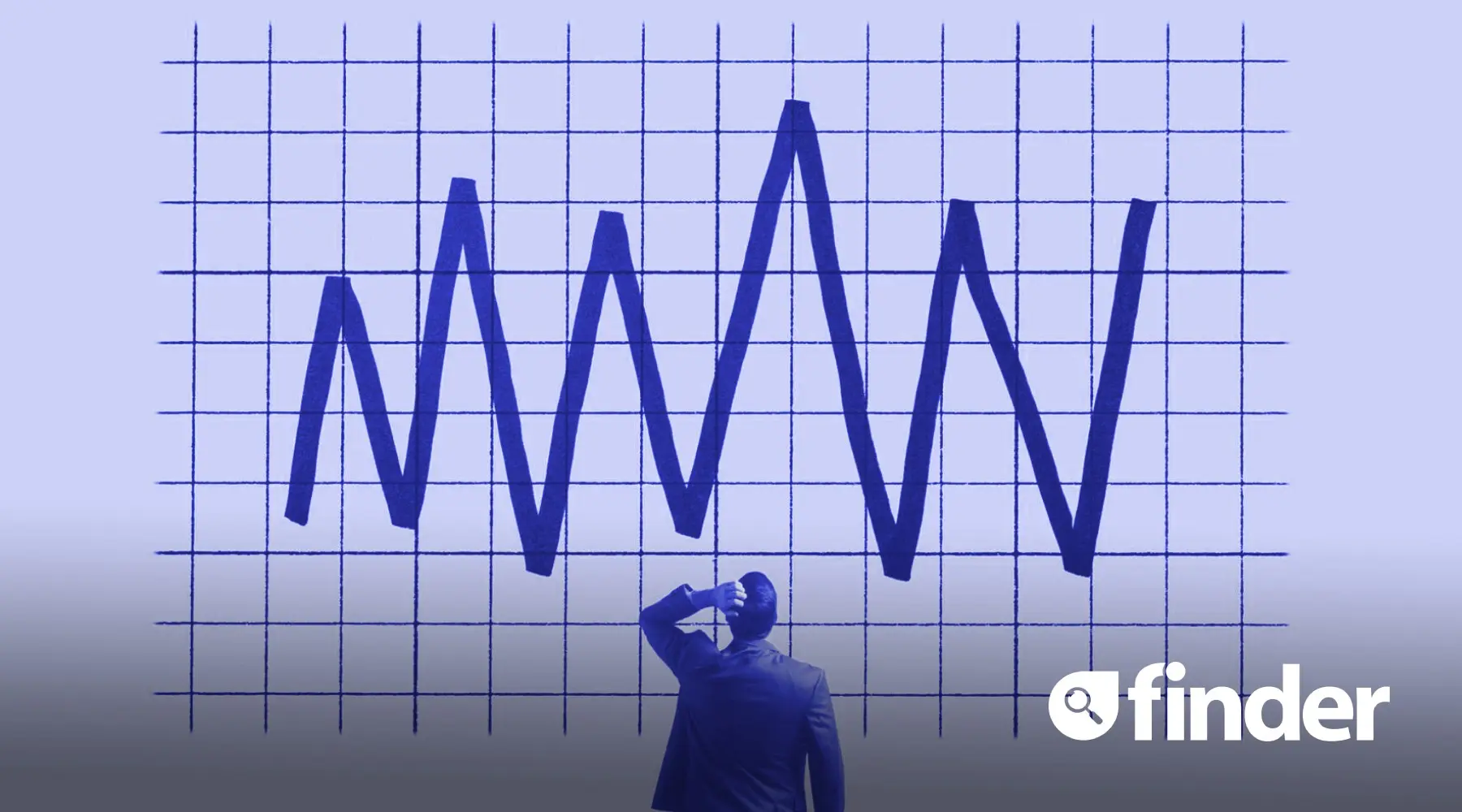Trading psychology: trade smarter by understanding panic selling and FOMO

Whether it's panic selling, FOMO'ing into the wrong shares or hiding cash during periods of volatility, traders make the wrong decisions, which hurt their returns in the long-run.
 Sponsored by IG Australia Pty Ltd (AFSL 515106). Ambitious and ready to improve your trading mind? Explore expert articles, insights and podcasts at IG's free Master Your Trading Mind learning hub. Because our brains aren't naturally wired for trading, but they can be rewired and we can learn and evolve. And IG is Where Traders Are Made.
Sponsored by IG Australia Pty Ltd (AFSL 515106). Ambitious and ready to improve your trading mind? Explore expert articles, insights and podcasts at IG's free Master Your Trading Mind learning hub. Because our brains aren't naturally wired for trading, but they can be rewired and we can learn and evolve. And IG is Where Traders Are Made.
Sponsored by IG Australia Pty Ltd (AFSL 515106). Ambitious and ready to improve your trading mind? Explore expert articles, psychology insights and podcasts at IG's free Master Your Trading Mind learning hub. Because our brains aren't naturally wired for trading, but they can be rewired and we can learn and evolve. And IG is Where Traders Are Made.
Every trader comes in with a well thought plan and how they hope to react when they are trading.
Unfortunately though, traders can undo even the most well thought out and methodical strategy if they are unable to control their emotions.
As IG Australia market analyst Tony Sycamore says trading consistency is important when it comes to trading.
"It's better to take the human or emotional aspect out of trading and this goes back to the idea, a trader can't control the direction a market takes, but they can control where they exit a trade, either for a loss or for a profit," he explains.
To help you understand the basic psychology behind trading and what some of the emotional biases you will face, Finder has teamed up with IG to talk you through panic selling and FOMO.
IG Guide: How to manage the emotions of trading
What is panic selling?
Panic selling can be one of the most gut wrenching feelings a trader can experience. After years of building up their portfolio, changing market sentiment can see the price of an asset fall.
In essence panic selling is a widespread sell-off of stocks, or even the entire market due to rumours, low trader sentiment or an overcorrection to changing economic circumstances.
And while investors have no control over the market as a whole they can control their reactions.
As Sycamore says, even the most experienced trader can experience mood swings when the market is falling.
"The key is trying to minimise the swings, stay in the zone and follow the process," he says.
"Know that there will be both good days and bad days in trading. The desired outcome is to have more good days than bad days and to build the account balance."
What is FOMO?
If panic selling is moving off assets at the wrong time, then FOMO is the exact opposite.
The fear of missing out or FOMO is an emotional response to other traders succeeding. If you have FOMO you have an uneasy dissatisfaction with others supposedly living a more successful life.
IG's trading psychology specialist Louise Bedford believes this can lead you to make mistakes with your trading.
"Every time you defy the specifics of your written trading plan by knee-jerking out of, or into, a position, you make it easier to ignore your trading rules the next time. When you drift from your trading plan and panic sell, this can become a destructive habit," says Bedford.
How these biases can lead to decision fatigue
Unfortunately, traders who suffer these biases are likely to double down on their mistakes due to a psychological phenomenon known as decision fatigue.
Effectively it refers to the deteriorating quality of decision making over a long period of time.
Take this to your trading and it can be problematic.
Bedford says treating every trade in the same way can help offset these biases and limit decision fatigue.
" If you are constantly treating each trade as requiring your conscious thought, it can drain you. If you face too many decisions that require your active attention, this can be taxing," she says.
"Sure, the first few decisions you make in the day might be carefully considered… but as the day wears on, each extra decision taxes your working memory, and your ability to make additional decisions becomes worse."
That's bad news for a trader, because consistency is important.
Tips to avoiding biases in your trading
While having biases in your trading is normal, actively reflecting on the decisions you've made can help you grow as a trader.
"Look at your past trades. Try to understand why you made the decisions you did as a trader, and aim to isolate areas where you could have acted irrationally. Set this up as a once-a-year review in your calendar," Bedford says.
To help traders overcome panic selling, FOMO and other biases they might face, IG's specialists have given Finder a few handy trading tips:
- Get clear on your goals: Have a think about the trader you want to become and let that 'future you' draw you forward.
- Develop a habit of writing your thoughts on paper: Some psychology experts call this a Morning Journal.
- Review your results with another trader: See if they can help you recognise places in your trading plan where you broke your rules or engaged in behaviour that could be harmful to your trading account."

Start trading with IG
Compare other CFD trading platforms here


